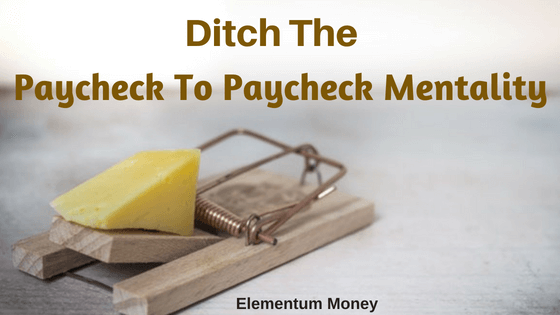
As I have understood more of the Personal Finance blogosphere I have come to realize there are different kinds of blogs within Personal Finance too. While some like mine cover all possible topics under the sun, including another passion there are a few blogs which are pretty focused on one topic within Personal Finance. Of these, frugality blogs are a pretty popular category with all posts geared towards saving money. But how many of us have stopped to think – what is the frugality philosophy?
What is the frugality philosophy?
Wikipedia defines Frugality as “the quality of being frugal, sparing, thrifty, prudent or economical in the consumption of consumable resources such as food, time or money and avoiding waste, lavishness or extravagance”.
I thought the definition is quite well rounded especially with the inclusion of time as an element with which one displays frugality.
A lot of people think that frugality is a uni-dimensional concept which simply involves penny-pinching. However, when you equate frugality with penny-pinching, it is bound to make you unhappy.
As put out by the Wikipedia definition, frugality is a lifestyle and a life choice. Also, frugality is very personal. What is frugal for me might be an extravagance in my parents’ eyes.
With this starting point, let’s define a frugality manifesto which can then help guide us towards this path more productively.
The Frugality Philosophy Manifesto
Presenting a 5-point Frugality Manifesto which consists of a principal and a question to test any money spending on the path to a frugal lifestyle:
#1 Thou shall look for long-term value than mere penny pinching
With most purchases, penny-pinching often comes with value only for the short term. For instance, for some time now I have been buying cheap shoes sold by a local shop in the neighborhood. However, off late, I have realized they are really not long-term value as some of them end up hurting my feet more than just the initial shoe bite. I would be better off spending a little more and buying better quality shoes that last me long and also provide comfort in the day.
However, this thinking can lead to a self-justifying path to a never-ending trail of extravagances. Ensure that the extra amount you spend is really a long-term value and not a frill that you can really do without. For instance, does the sunroof in the new car that you are considering, provide you with long-term value or is it just about making a statement which might not be worth the money spent.
Ask yourself: Can I get better value for the long term by spending a little more? Would that money be worth spending on it or is it too much of an extravagance that I can do without?
#2 Thou shall not replace what is not broken
This is one of the biggest lessons that I have learned from my parents be it through the hand-me-down clothes of my sister that I have worn or the appliances that have survived in our house through multiple rounds of repair.
My parents have completed forty years of marriage and twenty of those years have come in the house that they live currently in. On my last trip home, I noticed that their bed is forty years old whereas most of the furniture is twenty years old!
With clothes or shoes or appliances, I try to continue following the philosophy of seeing how long can I use those things until I really need to replace them. For instance, after 6 years of long use of my laptop and 3 rounds of repairs in that period, I finally replaced it with a new model because I knew my productivity would increase and it really had run its course.
Ask yourself: Can this thing that I am planning to replace, be used for some more time with a small repair or without reducing much in value to what I am doing?
#3 Thou shall buy only things you need and not want
There’s a big difference between needs and wants. For instance, you need a new phone but you want an iPhone.
Differentiating between needs and wants can be a tough task because once the brain is used to getting its way, it can pretty much justify anything.
Check with yourself on the exact role that a new purchase will play in your life. If you already have 5 skirts and you really want a new one that you have just seen, do you then use all 6 or do you start donating some of your old ones?
Ask yourself: Is this new purchase a need or a want? Do I really need it in my life or can I do without it?
#4 Thou shall define priorities and spend accordingly
Money is an instrument to help us lead fulfilling lives. Logically it should then be easy to spend on things that are important to us. Frugality also means knowing your priorities and spending on those.
For instance, my husband hates commuting and for him traveling in the city comfortably is important for his peace of mind. So, he doesn’t mind spending that little bit extra on commute the few times that he has to. On the other hand, I choose to save on it and rather spend on the times that I meet my friends.
One thing to remember – Everything cannot be a priority. Priorities, when being frugal, come at the cost of de-prioritizing something else that you choose to save money on.
Ask yourself: What are your priorities in life for which you are ok to spend a little and what is not that big a priority on which you would rather save?
#5 Thou shall not save money at the cost of time
This I believe is a very important point that a lot of us forget. You might look up as many google links as you want on DIY soap but if it means that you need to buy equipment that you might not otherwise use and spend hours a week just trying to get it right, is it really worth it?
As Wikipedia mentions, frugality is also about being sparing when it comes to time. Know how valuable is your time and weigh it against the money that you are saving. Can you do something with that time that might be of much more value than the money that you might be saving on it?
Ask yourself: Is the time that I am going to spend in an effort to save x money worth that much or would I better off spending this time on something else?
Frugality is a philosophy which is different for everyone. Know what frugality means to you so that you can stop pinching pennies and apply it in all spheres of your life while being extremely productive and happy about it too.
What is your take on frugality? Let me know in the comments below or email me at aparna@elementummoney.com





Leave a Reply